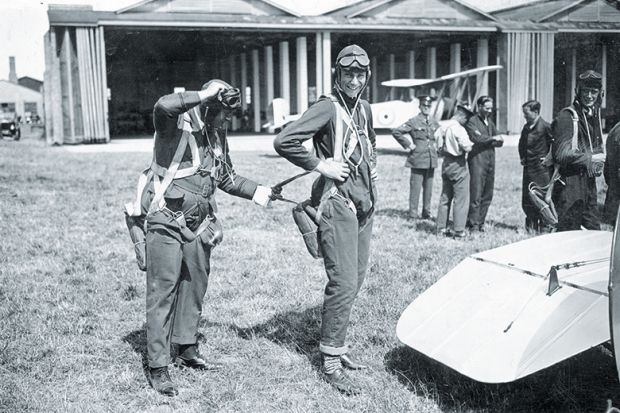I have spent more time in the air in the past couple of months than I care to remember.
Recent trips took me west, to California, and east, to South Korea. Before that there was a week in Australia and another in the Middle East. A brief interlude allows a few reflections from campuses across the continents.
The first, from a Londoner’s perspective, is that Brexit is not the talking point Brits might imagine.
There was polite interest in the US, although of the ultra-broad brush kind (“So can you explain this Brexit idea to me?” more than one university chancellor asked).
Australia, with its close connections, was more clued up on the detail but no less bemused, while in Asia my impression was that there was concern but that it focused on the wider implications for democracy of Britain’s slow-motion nervous breakdown.
Whatever the continent, discussions about higher education turn, sooner rather than later, to China’s role in the changing global dynamics.
In the US, there was a sense that university leaders were taking seriously the supposed threat of Chinese students “spying” during their time on campus, and in our opinion pages this week we discuss this issue from two different perspectives.
The concern also came up in conversations in Australia, where one vice-chancellor suggested that Western universities had a decision to make about barring Chinese nationals from courses and research fields they consider vital to national security.
Such a hard line was particularly striking in a country that relies heavily on Chinese student fees.
The other side of the China question is the country’s dramatic and sustained improvement in research, fuelled by generous state investment.
This is a story that is well known, and which we have told in these pages on numerous occasions. So while in Asia it was instructive to hear from the provost at Tsinghua University, who gave a more critical analysis of China’s development as a research power.
The risk, he suggested, is that the country focuses on producing papers at the expense of all else – that universities become “journal paper factories” without concerning themselves about the value and purpose of the research they do, or indeed their role as teaching institutions.
What else came up in conversation? Issues of free speech cropped up everywhere, from the campuses of the University of California system (which seemed surprisingly relaxed – or perhaps it was just resigned – about regular trolling by Donald Trump) to Australia, where populists have also had universities in their sights.
The question of how universities should innovate, both in terms of their own strategies and operations and in terms of the impact of their research, has been another common theme.
The president of Northeastern University in Boston talked about higher education facing an existential threat – and huge opportunities – from artificial intelligence, suggesting that universities must reimagine their role in delivering lifelong learning in particular for the AI age. “Universities are very conservative. We want to change the world, but we do not want to change ourselves,” he said.
At Stanford University, there seemed to be similar urgency about reasserting the role of universities for a new era, as evidenced by its new Institute for Human-Centred AI, which brings together faculty from across disciplines to marshal the full spectrum of scholarship for positive technological advance.
It used to be said that the world was getting smaller. A more relevant observation today is that it is getting more fragmented and difficult to navigate.
Spending time on university campuses, though, is a constant reminder that the challenges the world faces are not parochial or isolated, and will not be solved by closing minds or borders.
Research has always operated on this basis, and the flow of ideas and talent has followed suit.
Long may it continue. But I do feel bad about the carbon footprint – and if we could add jet lag to the grand challenges to be resolved by our brightest minds, that would be fine.
POSTSCRIPT:
Print headline: Common threads
Register to continue
Why register?
- Registration is free and only takes a moment
- Once registered, you can read 3 articles a month
- Sign up for our newsletter
Subscribe
Or subscribe for unlimited access to:
- Unlimited access to news, views, insights & reviews
- Digital editions
- Digital access to THE’s university and college rankings analysis
Already registered or a current subscriber? Login



